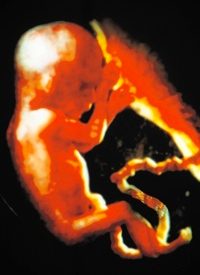
“At the recently concluded session of the United Nations Human Rights Council, Nicaragua came up against intense and concerted international pressure from fellow United Nations (UN) member states over the abortion ban the Latin American country’s National Assembly adopted unanimously into law four years ago,” reports the Catholic Family and Human Rights Institute (C-FAM).
"Despite promising initial evidence that the prohibition on abortion has helped lower maternal mortality rates," C-FAM noted in a March 25 report by Samantha Singson, "Nicaragua has been the target of international pressure and scrutiny from UN agencies, donor governments and non-governmental organizations."
The International Planned Parenthood Federation (IPPF), the Guttmacher Institute, Amnesty International, and other pro-abortion NGOs (non-governmental organizations) have been working with agencies of the UN and the European Union to pressure Nicaragua to remove its restrictions on abortion.
"Last month, Nicaragua underwent the Universal Periodic Review (UPR), which is an opportunity for the UN Human Rights Council — an inter-governmental UN body made up of 47 States responsible for addressing situations of human rights violations and making recommendations on them — to examine the human rights record of all member states," C-FAM’s Singson reported. The C-FAM report continues:
Each country is reviewed every four years with the aim of ensuring compliance with international human rights obligations. As part of its UPR, Nicaragua defended its pro-life legislation reporting that "legal amendments reflected the exercise of sovereignty, and had been adopted by the parliamentary majority in the national assembly." Nicaragua stated that the abortion ban was "an issue of sovereignty, not a religious one" as "the majority of Nicaraguans believed that the right to life of the unborn was important."
Singson notes that "no UN treaty mentions abortion and there is no binding human rights obligation to allow abortions." Members of the committees charged with overseeing state compliance to the treaties, she reports, "have taken it upon themselves to attach a ‘right to abortion’ under long-established rights like the rights to the highest attainable standard of health, privacy or the right to be free from discrimination and have used this misinterpretation of international law to push abortion on sovereign nations."
At the UN Human Rights Council meeting in New York, a number of countries castigated Nicaragua for its abortion ban. Eleven countries — Slovenia, Netherlands, Norway, the Czech Republic, Mexico, United Kingdom, Belgium, France, Finland, Sweden, and Germany — "all pressed Nicaragua to repeal the abortion ban," C-FAM reported.
The abortion ban was passed unanimously by the National Assembly in 2006 and signed by President Enrique Bolanos 10 days before President-elect Daniel Ortega assumed office. As leader of the Marxist-Leninist Sandinista Party junta that ruled Nicaragua during the 1980s, Ortega supported abortion. However, in order to gain sufficient support for a plurality in the 2006 elections, the unpopular Ortega made a pretense of re-converting to the Catholic Church he had persecuted while previously holding the reins of power. Part of that pretense involved publicly condemning abortion and giving support to the new abortion ban.
The conversion was not that convincing, apparently, and he barely squeaked by, eking out a plurality of 38 percent. Pro-life analysts believe that Ortega continues to support the abortion ban because of his need to avoid offending the overwhelmingly Catholic voting base, not because of any pro-life convictions of his own, even as he continues to strengthen his ties to the communist regime of Fidel Castro in Cuba, which is strongly pro-abortion.
Related content:
Resurgent Communism in Latin America



